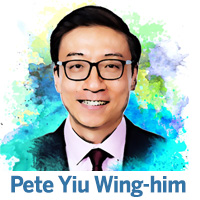President Xi Jinping attended a symposium on the development of private enterprises in Beijing last week and delivered a speech emphasizing the significant role of the private sector and reiterating the government’s commitment to boosting it with supportive policies and measures.
 This is the first time the central government has held such a high-profile symposium on private enterprises since 2018, and it has attracted a great deal of attention.
This is the first time the central government has held such a high-profile symposium on private enterprises since 2018, and it has attracted a great deal of attention.
The valuable qualities of private enterprises lie in their surging vitality, flexibility and creative thinking. New Chinese inventions like DeepSeek, TikTok, and Alipay were created by private enterprises. Many of the most cutting-edge technologies have likewise been developed and commercialized by private firms at home and abroad. Take the United States for example. SpaceX has a higher success rate in launching rockets than NASA; and Nvidia is currently able to dominate the entire graphics card market, mainly because its founder, Jensen Huang, launched the CUDA parallel computing platform for Nvidia graphics cards as early as June 2007, together with its operations. There are now millions of CUDA coding lines, covering various libraries such as cuBLAS for linear operations and cuDNN for neural networks. The vitality of a nation’s economy often relies upon the vibrant development of private enterprises.
In China, a large number of private enterprises, such as Huawei, BYD, Tencent, and Alibaba, have made outstanding contributions to the country’s development and the well-being of its people. The founders and chief executive officers of private enterprises are often industry leaders, and their insights can open up vast red and blue oceans. National policies have supported the development of private enterprises, and since 2018 the country has made great progress in economic development, improvement of people’s livelihood, and technological breakthroughs. Private enterprises have demonstrated their creativity and execution capabilities, while the country has expanded its influence through the Belt and Road Initiative, laying a solid foundation for future expansion into overseas markets and for Chinese culture to “go global”. As a single example, the recent Chinese animated blockbuster Ne Zha 2 is currently sweeping the world.
Meanwhile, in 2025, the world is changing ever faster. The application of artificial intelligence (AI) technology was born in 2008 with Google Translate. The next major breakthrough in AI technology also came from the US, three years later, with IBM’s machine learning application IBM Watson. And now DeepSeek, a Chinese AI model, attracted worldwide attention when it was released last month. The model’s “distillation” method has become a hot topic for reducing the cost of model development. Grok-3, recently launched by Elon Musk’s xAI, has purportedly surpassed GPT-4o and DeepSeek-V3 in mathematics, science, reasoning and programming.
It is not difficult to see that the international competition in technology today is a race against time.
Thus, the central government’s commitment to supporting the healthy and high-quality development of the private economy, as reiterated by Xi in last week’s symposium, is of great significance and encouraging to private enterprises.
The author is a director of the Jilin Province Overseas Friendship Association, an executive director of the Hong Kong RJS Society & Chamber of Commerce, and a deputy director of the Innovation and Technology Committee of the Hong Kong CPPCC Youth Association.
The views do not necessarily reflect those of China Daily.


